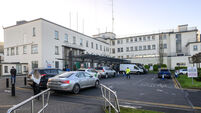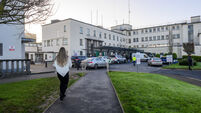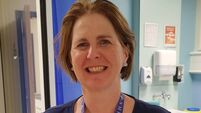Nurses to hold urgent meetings to discuss hospital overcrowding crisis

INMO general secretary Phil Ní Sheaghdha: 'It is clear that the spread of viruses is going to have a detrimental impact on patient flow throughout our hospitals.'
Nurses in hospitals worst affected by overcrowding are to hold urgent meetings to discuss the growing crisis as 592 patients waited on trolleys for a bed on Tuesday.
They are worried about a potential spread of infections including Strep A, norovirus, and covid-19 along the packed corridors and wards.













